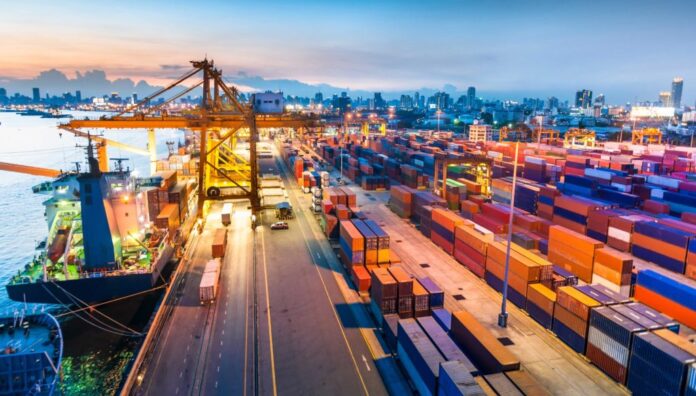LAHORE: The Ministry of Commerce (MoC) has recommended Prime Minister Imran Khan to announce a bailout package for the export sector amid the rising fear of coronavirus (Covid-19) pandemic, informed sources told Profit on Tuesday.
During a recent high-level meeting with Imran Khan regarding ‘Coronavirus impact on Economy’, the PM was recommended to form a cabinet sub-committee to develop economic emergency reforms.
INT’L MARKET POST OUTBREAK
According to sources, after the spread of Covid-19, the United States (US), European Union (EU) and United Arab Emirates (UAE) are closing their markets and port operations.
“Major retailers are closing their stores worldwide and Pakistani exporters are being told not to ship consignments till further notice,” an official informed.
World economic growth forecast has declined from 4.9pc to 2.9pc while China’s GDP projection has contracted from 6.1pc to 4.8pc. In addition, SME global revenues are expected to shrink by 30pc to at least 50pc of the last fiscal year.
“All trade fairs and exhibitions stand cancelled and we (Pakistan) also sealed the Afghanistan border,” the official said.
IMPACT ON PAK EXPORTS
Sources said that Pakistan’s export revenues are likely to fall due to a three-month delay in consignments; the payments to exporters would be delayed by at least six months.
Inventories of Pakistani exporters will go up while delayed payments would lead to cash flow crunch for businesses, sources feared, adding that shut down of factories may lead to increased unemployment.
Sources said in order to mitigate job losses, the MoC has recommended two weekly holidays for labourers instead of one.
To improve the cash flow of exporters, the ministry has recommended the premier to ensure GST refunds, adjust interest rates, reduce liquidity ratio requirements of banks and increase credit availability for exporters.
The MoC also recommended providing relief to exporters by deferred payments on export finance along with the suspension of EOBI, social security payments as well as markup on bank loans for a year.
“We recommended the PM to extend export refinance (ERF) tenure for a year and take the industry back to zero-rated,” a ministry official said. “To reduce the cost of exports, the MoC has recommended the premier to eliminate duties and sales tax on machinery, raw materials and intermediary products.”
EIGHT-MONTH DATA
The MoC informed the premier that Pakistani exports to the EU stood at $5,327 million during the first eight months of FY20 as compared to $5,120 million during the same period of FY19, showing a growth of 4pc. Similarly, exports to the US grew by 4.4pc ($2,690 million) as compared to $2,578 million last year.
During the period under review, Pakistani exports to China witnessed a 7.5pc ($1,271 million) growth while that to UAE saw 53.6pc ($806 million) increase over last year.
The PM was further informed that the country’s export target for FY20 was $24 billion while its exports during the first eight months of FY20 stood at $15,666 million, showing an increase of 3.6pc as compared to $15,138 million worth of exports during 8MFY19.
PROJECTED LOSSES
The MoC fears that in the remaining four months of FY20, the country’s exports would decline significantly. The MoC presented two scenarios during the meeting; the first was based on a 25pc cut in the country’s exports to EU, USA, China, UAE, Afghanistan and other countries. Under such circumstances, exports are likely to fall by $461m, $214m, $91m, $78m, $62m and $429m, respectively.
The second scenario (worst case scenario), was based on a 50pc cut in the country’s exports to EU, USA, China, UAE, Afghanistan and other countries. In this scenario, exports are likely to fall by $922 million, $428 million, $182 million, $156 million, $124 million and $858 million, respectively.
The ministry informed the premier that during the last four months of FY20, the country’s total exports are likely to fall by $1,336 million in the first scenario, while they could decrease to $2,672 million in the worst case scenario.




